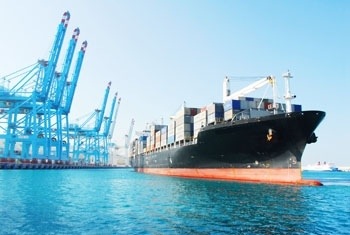GLOBAL ARAB NETWORK

Last year, Mr. Berrada patented a new invention for solar-water heaters at the Moroccan Office of Property Rights (OMPIC). His idea is to improve the efficiency of solar-water heaters by introducing a heat-transport fluid system specially designed for buildings and communities. Mr. Berrada, a state engineer and a graduate of the Hassania School of Public Works, dreams of bringing his concept into commercial reality.
But he struggles.
To start with, he would need technical support to elaborate a business plan and financing for a prototype. If he could commercialize this promising technology, Moroccan consumers would be able to buy better solar-water heaters, local green jobs would be created and climate change emissions would be reduced.
The World Bank is currently developing a Climate Innovation Center (CIC) in Morocco to help innovators such as Mr. Berrada achieve their goals. CICs provide a tailored set of financing and other services to allow the local private sector to participate more pro-actively and profitably in the ongoing clean technology revolution.
InfoDev, a global partnership program within the World Bank Group, is leading the development of seven other CICs around the world. An on-going technical assistance project, jointly piloted by the World Bank and InfoDev, is preparing a business plan for the first CIC in the Middle East and North Africa (MENA) region after exhaustive consultations with numerous local stakeholders.
To identify the needs of entrepreneurs such as Mr. Berrada, the World Bank team recently finished a survey covering a broad spectrum of stakeholders engaged in innovation and climate technologies in Morocco. Around one hundred responses were received, half of them from industries and start-ups. The survey identified obstacles to innovation and ways that the Moroccan CIC could remove them. The results demonstrated a clear need among Moroccan stakeholders for the kind of services the CIC could provide. The key results of the survey are the following:
Strong demand for services to overcome the “valley of death” in product commercialization: applied research, demonstration and market entry.
Desire for (1) Information about market development and technologies, (2) Technical trainings, and (3) Financing suitable for small and medium enterprises that is not currently available in the market.
90% of respondents considered participation in national and international networks essential, which the CIC could provide to enhance technical capacities and foster technology transfer.
88% of respondents saw benefit in a focal point, or cluster, for climate technologies in Morocco such as the one that CIC could provide.
Morocco has a plethora of stakeholders involved in innovation and/or climate technologies. The government has recently put in place several instruments to show its commitment, e.g. innovation funds, clusters, etc. However, it will take some time before concrete results are visible . The CIC could support the country’s progress towards a green economy. Moreover, it could assist Mr. Berrada and his fellow innovators in converting his dream into reality and, in the process , create badly needed local jobs.
Submitted by Roger Coma Cunill – This blog has been authored by Roger Coma-Cunill, Jonathan Coony and Manaf Touati
>
.






